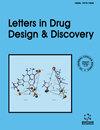血管紧张素1型受体:降低器官移植排斥风险的药物靶点
IF 1.6
4区 医学
Q4 CHEMISTRY, MEDICINAL
引用次数: 0
摘要
摘要:同种异体移植排斥反应是目前必须克服的主要问题之一。有证据表明,局部肾素血管紧张素系统(RAS)在慢性同种异体移植损伤的进展中起作用。血管紧张素II由肾素-血管紧张素系统产生,是众所周知的控制血压和体液系统的主要调节分子。有证据表明,这种生物活性分子及其受体通过不同的分子机制,如激活先天免疫和细胞免疫,上调炎症通路,通过表达促纤维化分子如转化生长因子β (TGF-β)等积累细胞外基质,增加纤维化风险,从而增加组织损伤和器官移植排斥的风险。基于这些发现,AT1R拮抗剂可能具有治疗潜力,通过调节免疫反应、炎症途径和纤维生成来改善器官功能,从而预防组织损伤和同种异体移植排斥反应的风险。本文章由计算机程序翻译,如有差异,请以英文原文为准。
The Angiotensin type 1 receptor: a drug target to reduce the risk of organ transplant rejection
Abstract: Allograft rejection is one of the main problems that must be overcome. Evidence suggests a role of the local renin-angiotensin system (RAS) in the progress of chronic allograft injury. Angiotensin II, generated by the renin-angiotensin system, is well-known as a major regulator molecule to control the blood pressure and fluid system. Evidence suggests that this bioactive molecule and its receptor increase the risk of tissue injuries and organ transplant rejection through different molecular mechanisms such as activation of innate and cellular immunity, upregulation of inflammatory pathways, and accumulation of extracellular matrix by expression pro-fibrotic molecules like transforming growth factor β (TGF-β) to increase the risk of fibrosis. Based on these findings, AT1R antagonists might have therapeutic potential to prevent the risk of tissue injuries and allograft rejection by regulating immune response, inflammation pathway, and fibrogenesis to improve organ functions.
求助全文
通过发布文献求助,成功后即可免费获取论文全文。
去求助
来源期刊
CiteScore
1.80
自引率
10.00%
发文量
245
审稿时长
3 months
期刊介绍:
Aims & Scope
Letters in Drug Design & Discovery publishes letters, mini-reviews, highlights and guest edited thematic issues in all areas of rational drug design and discovery including medicinal chemistry, in-silico drug design, combinatorial chemistry, high-throughput screening, drug targets, and structure-activity relationships. The emphasis is on publishing quality papers very rapidly by taking full advantage of latest Internet technology for both submission and review of manuscripts. The online journal is an essential reading to all pharmaceutical scientists involved in research in drug design and discovery.

 求助内容:
求助内容: 应助结果提醒方式:
应助结果提醒方式:


